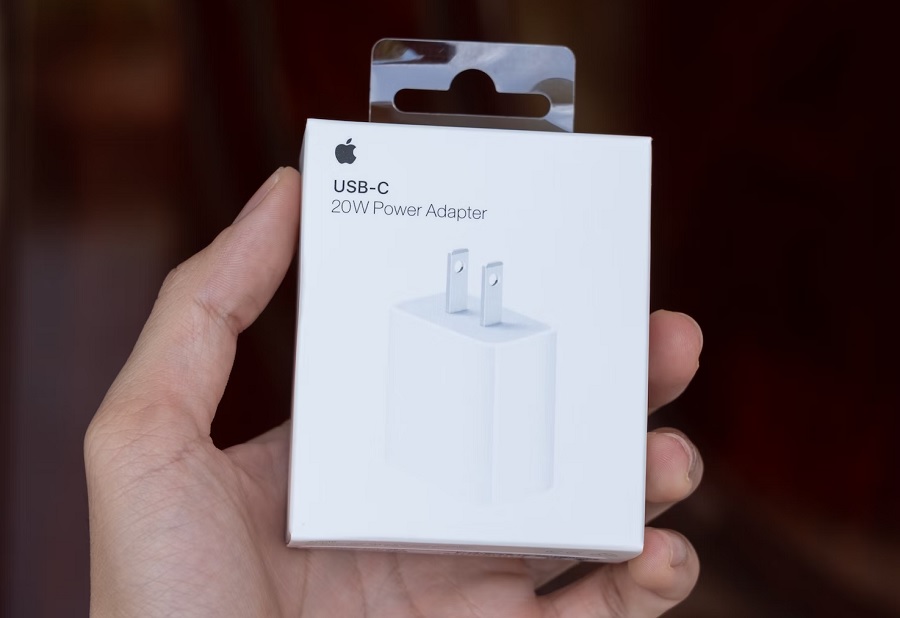European Union lawmakers passed a new mandate earlier this month that will require tech companies to include a USB-C port in upcoming electronic devices. And Apple has now confirmed it will abide by the new policy by replacing the iPhone’s Lightning port to support USB-C charging cables and power adapters.
After a decade-long campaign to standardize chargers used on a wide range of electronics in the region, the European Parliament voted overwhelmingly in favor of the common charger law. The policy, expected to be fully implemented in 2024, states all portable electronic devices that use a wired cable for charging are required to have a USB-C port.
Many believed this to be the end of iPhones with the Lightning port, and Apple confirmed this to be the case. In an appearance at the Wall Street Journal Tech Live on Wednesday, Apple SVP of Worldwide Marketing Greg Joswiak confirmed the EU law signals the launch of an iPhone with a USB-C port.
Joswiak provided a lengthy response when asked what Apple thinks about the recently passed law. But, ultimately, he said the company will follow the new rules.
“Obviously, we’ll have to comply,” Joswiak said. “We have no choice as we do around the world to comply to local laws.”
He also recognized that Apple has had its contentions with earlier proposals to standardize chargers for electronic devices. Joswiak recalled that the EU previously wanted to make micro USB the common charging port over a decade ago. “If we have standardized a micro USB, that chart doesn’t exist,” Joswiak said and then pointed at a side-by-side illustration of Lightning and USB-C cables.
He clarified that Apple understands the EU's goal of minimizing e-waste in pushing for a common charger in the region. It appears, however, that Apple does not completely agree with how the standardization of USB-C chargers was achieved.
He also seemingly implied that detachable cables would have been enough to solve the issue of consumers accumulating too many charging cables and bricks over time. “We think the approach would’ve been better environmentally and better for our customers to not have a government be that prescriptive,” Joswiak added.
Photo by Thai Nguyen on Unsplash



 Rio Tinto Shares Hit Record High After Ending Glencore Merger Talks
Rio Tinto Shares Hit Record High After Ending Glencore Merger Talks  Toyota’s Surprise CEO Change Signals Strategic Shift Amid Global Auto Turmoil
Toyota’s Surprise CEO Change Signals Strategic Shift Amid Global Auto Turmoil  Oracle Plans $45–$50 Billion Funding Push in 2026 to Expand Cloud and AI Infrastructure
Oracle Plans $45–$50 Billion Funding Push in 2026 to Expand Cloud and AI Infrastructure  TSMC Eyes 3nm Chip Production in Japan with $17 Billion Kumamoto Investment
TSMC Eyes 3nm Chip Production in Japan with $17 Billion Kumamoto Investment  SoftBank and Intel Partner to Develop Next-Generation Memory Chips for AI Data Centers
SoftBank and Intel Partner to Develop Next-Generation Memory Chips for AI Data Centers  American Airlines CEO to Meet Pilots Union Amid Storm Response and Financial Concerns
American Airlines CEO to Meet Pilots Union Amid Storm Response and Financial Concerns  Alphabet’s Massive AI Spending Surge Signals Confidence in Google’s Growth Engine
Alphabet’s Massive AI Spending Surge Signals Confidence in Google’s Growth Engine  Instagram Outage Disrupts Thousands of U.S. Users
Instagram Outage Disrupts Thousands of U.S. Users  Nvidia CEO Jensen Huang Says AI Investment Boom Is Just Beginning as NVDA Shares Surge
Nvidia CEO Jensen Huang Says AI Investment Boom Is Just Beginning as NVDA Shares Surge  Jensen Huang Urges Taiwan Suppliers to Boost AI Chip Production Amid Surging Demand
Jensen Huang Urges Taiwan Suppliers to Boost AI Chip Production Amid Surging Demand  Taiwan Says Moving 40% of Semiconductor Production to the U.S. Is Impossible
Taiwan Says Moving 40% of Semiconductor Production to the U.S. Is Impossible  SpaceX Pivots Toward Moon City as Musk Reframes Long-Term Space Vision
SpaceX Pivots Toward Moon City as Musk Reframes Long-Term Space Vision  Baidu Approves $5 Billion Share Buyback and Plans First-Ever Dividend in 2026
Baidu Approves $5 Billion Share Buyback and Plans First-Ever Dividend in 2026  SpaceX Prioritizes Moon Mission Before Mars as Starship Development Accelerates
SpaceX Prioritizes Moon Mission Before Mars as Starship Development Accelerates  Anta Sports Expands Global Footprint With Strategic Puma Stake
Anta Sports Expands Global Footprint With Strategic Puma Stake  Samsung Electronics Shares Jump on HBM4 Mass Production Report
Samsung Electronics Shares Jump on HBM4 Mass Production Report  Sony Q3 Profit Jumps on Gaming and Image Sensors, Full-Year Outlook Raised
Sony Q3 Profit Jumps on Gaming and Image Sensors, Full-Year Outlook Raised 































